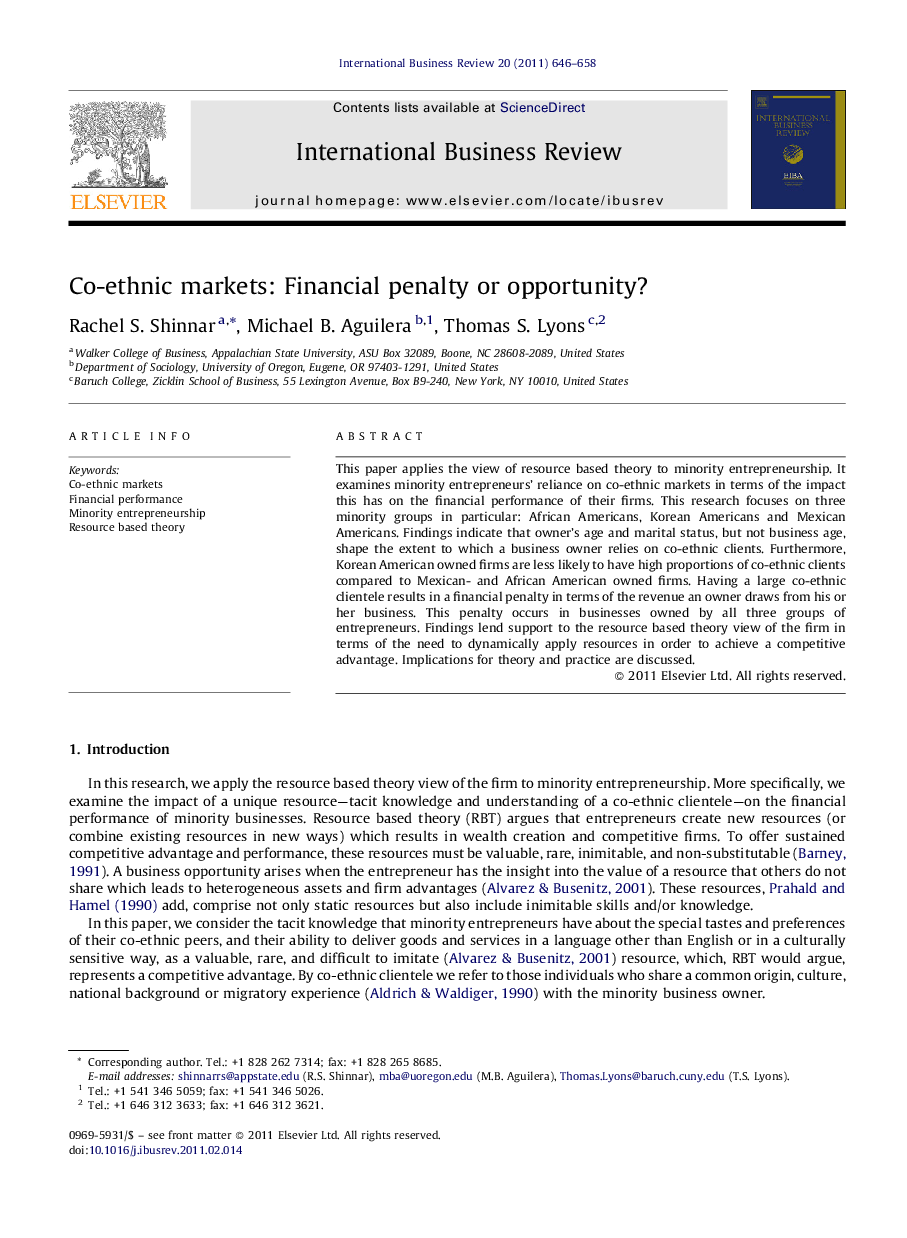| Article ID | Journal | Published Year | Pages | File Type |
|---|---|---|---|---|
| 1000612 | International Business Review | 2011 | 13 Pages |
This paper applies the view of resource based theory to minority entrepreneurship. It examines minority entrepreneurs’ reliance on co-ethnic markets in terms of the impact this has on the financial performance of their firms. This research focuses on three minority groups in particular: African Americans, Korean Americans and Mexican Americans. Findings indicate that owner's age and marital status, but not business age, shape the extent to which a business owner relies on co-ethnic clients. Furthermore, Korean American owned firms are less likely to have high proportions of co-ethnic clients compared to Mexican- and African American owned firms. Having a large co-ethnic clientele results in a financial penalty in terms of the revenue an owner draws from his or her business. This penalty occurs in businesses owned by all three groups of entrepreneurs. Findings lend support to the resource based theory view of the firm in terms of the need to dynamically apply resources in order to achieve a competitive advantage. Implications for theory and practice are discussed.
► This paper examines antecedents and outcomes of minority entrepreneurs’ reliance on co-ethnic markets. ► We find that owner's age and marital status, but not business age, shape the extent to which a business owner relies on co-ethnic clients. ► Korean American owned firms are less likely to have high proportions of co-ethnic clients compared to Mexican- and African American owned firms. ► Having a large co-ethnic clientele results in a financial penalty.
